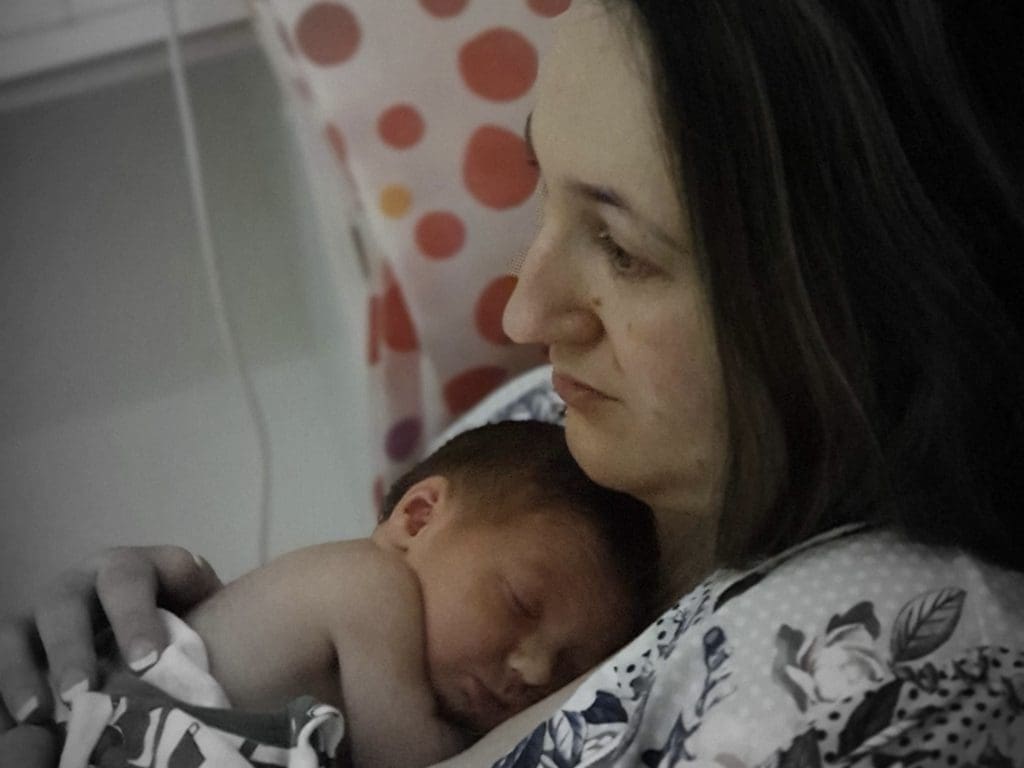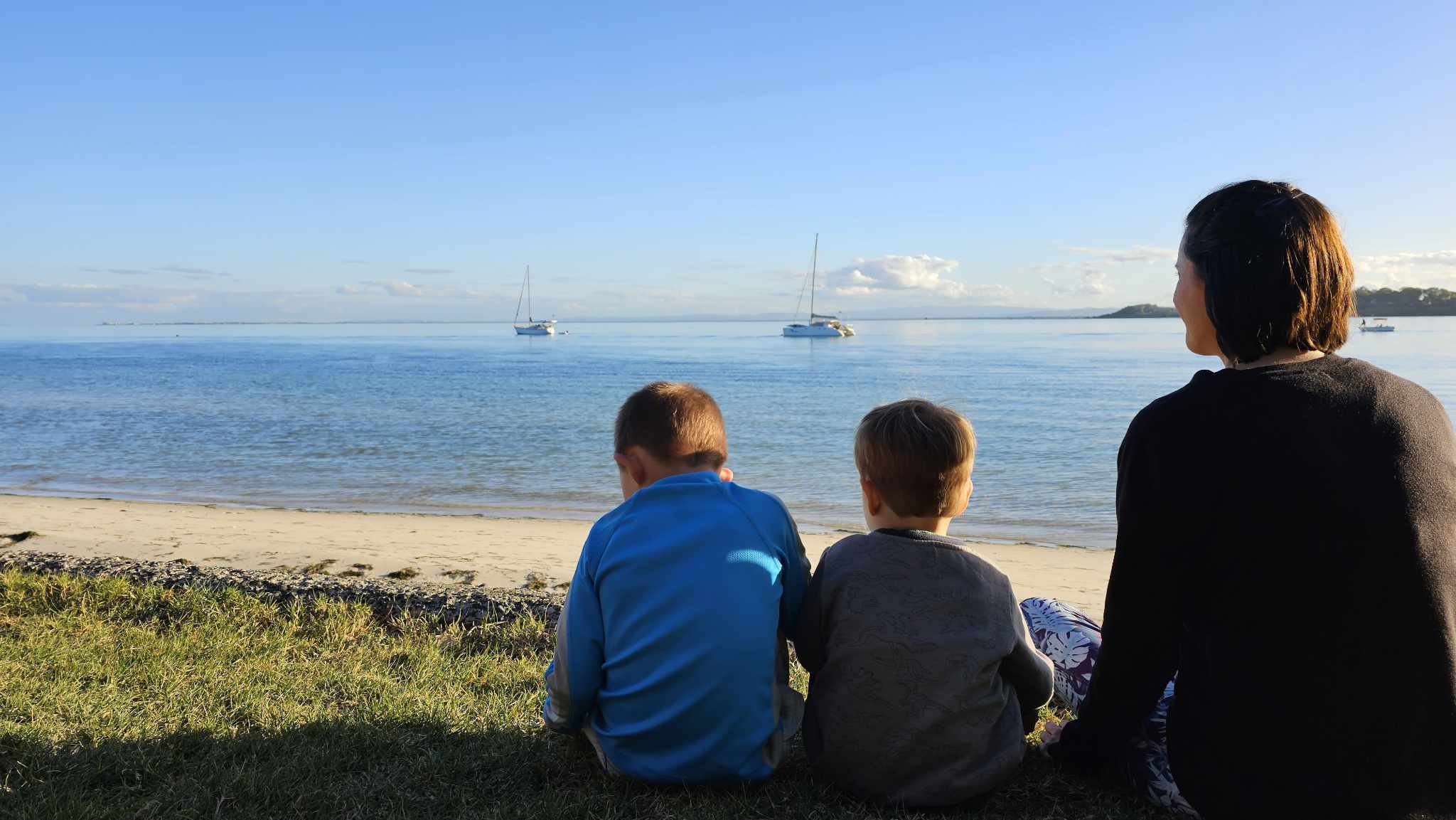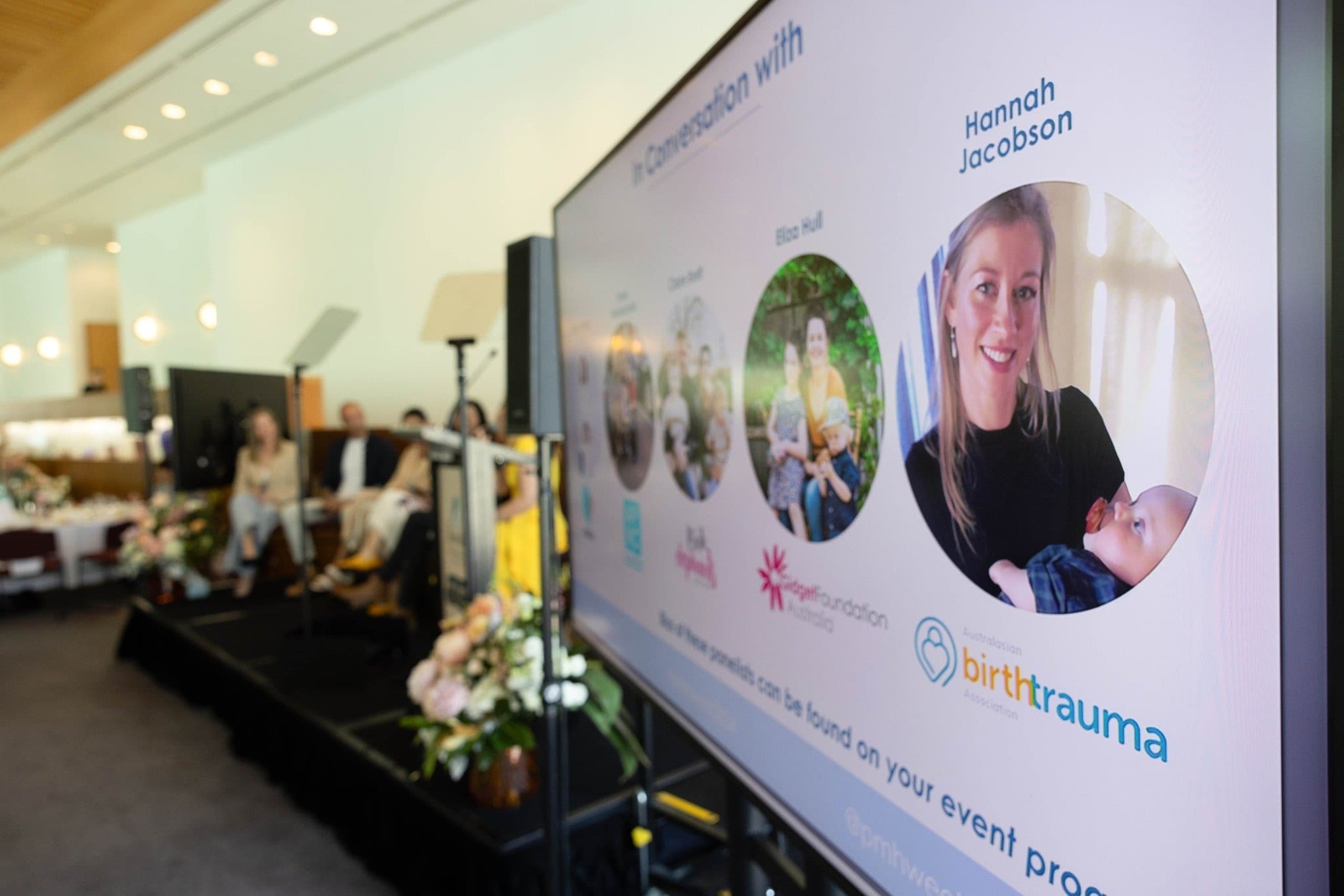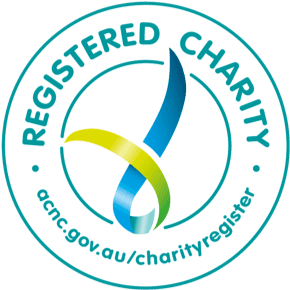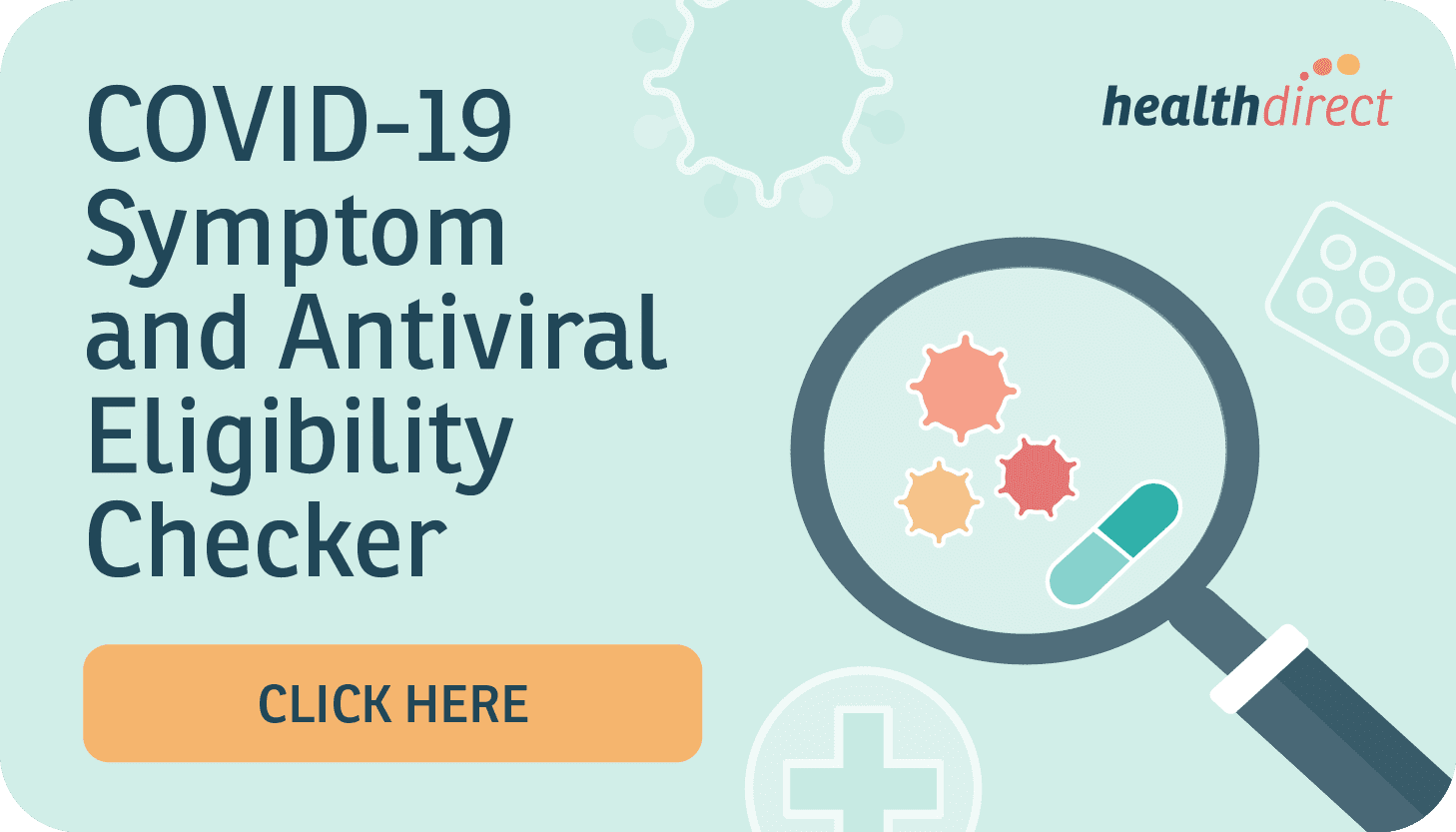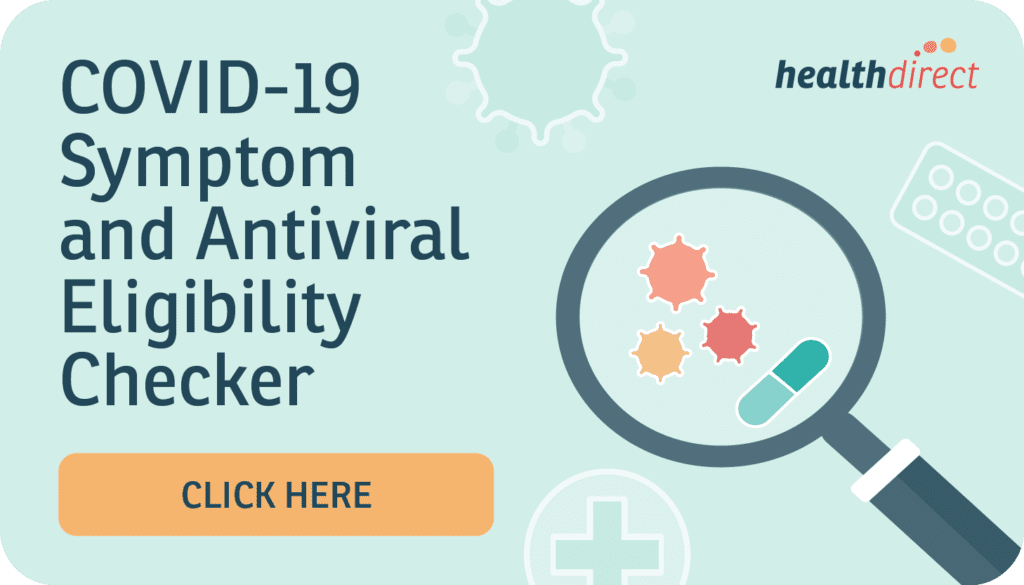I found out I was pregnant the day before we went into our first COVID lockdown in Victoria. I cried, booked a doctor’s appointment, and then accidentally locked myself out of the house and car, all in one morning! I was working as a registered nurse at the time and loved it.
The first trimester brought nausea, food aversions, and so much fatigue – but we were also excited.
At 19 weeks, I developed shortness of breath and a very high heart rate. After a trip to the emergency department, I was diagnosed with a pelvic deep vein thrombosis and probable PEs (blood clots in the pelvis and lungs). I was commenced on clexane (blood thinners) injections immediately twice a day for the rest of my pregnancy. It was very scary, as it can be life-threatening. I did not enjoy pregnancy, but was excited to meet our little one. At around 33-34 weeks, I developed high blood pressure and was being closely monitored for pre-eclampsia. I started on medication but still felt rotten. I remember I hadn’t even had the antenatal appointment with the anaesthetist yet to discuss pain relief options.
At a follow-up appointment on the ward, I was not feeling any better, and they did not know whether to admit me or not. Then I developed double vision, after I said I was more comfortable staying for observation.
I was admitted at around 7pm. I was taken to the birth suite by midnight as I had developed severe preeclampsia. I was told my baby needed to be delivered ASAP as both of our lives were at risk. The problem was, I was on blood thinners, so they could not operate immediately. I could not have an epidural due to the risk of spinal cord bleeding/damage, so it was finally decided I needed a general anaesthetic. The nurses and doctors were all talking over me as if I was not in the room. It was terrifying, especially having the basic nursing knowledge and feeling the urgency of the situation in their voices. I was alone. They said I did not need to call my husband in until the morning. I remember calling my dad in tears as I thought I was going to die.
I had an emergency C-section under general anaesthetic the next morning, and Oliver was born around 9.30am. I only know that the time I first saw him was 6.12pm as the photo of it is time-stamped. I have limited memories of the days that follow. My stay in the hospital lasted 2 ½ weeks due to a bleed in my abdominal muscles one week post-C-section. Back to the theatre I went and returned with two drain tubes. I had blood transfusions, wound infection, and ongoing high blood pressure, heart rate, and double vision. On top of the pressures of trying to breastfeed, pump, and learn to be a mum, it was a lot. There were many things that happened that made me feel very unsafe, and I lost absolute trust in the system.
The major trigger was not being listened to or having my concerns respected. There was one instance where I was one day post-second surgery, and my wound would not stop leaking – my dressing was soaked through, and I had stinging at my incision site. When I told my nurse, she said that the doctor said the dressing needed to stay in place until the next day, but it was more important for me to get out of bed, so I didn’t develop a pressure area. This made me very concerned, as they were not listening to me or respecting my clinical knowledge. Because I didn’t have my baby in the room with me, it felt like I didn’t matter.
I feel like having the knowledge and experience of a nurse added to my trauma, but also caused me to minimise my experience because I understood the pressure the midwives were under.
I knew the level of care I should be receiving, yet it was severely lacking at times:
- I could have been spoken to and listened to, not fobbed off my concerns.
- Communication between departments/staff had to tell my background when they called a MET call because the nurse did not know anything about me.
- Do not argue about your patient outside their room – they can hear you! If you don’t know how to care for them and don’t want them on your ward, discuss them in private. Decide and provide the best care they need, so they are not neglected because you don’t know how to care for them
- Provide education on ‘non-straightforward births.’ E.g., in my case, care of the surgical patient.
How has your trauma impacted my work?
I have suffered PTSD from my experience, and it has impacted my work in a big way. I have had multiple episodes at work where I have felt out of control and not listened to, and the big one is ‘my patients and myself have not been listened to or dismissed.’ Dismissing a patient’s concern is very triggering to me.
I had to transfer an infant to the special care nursery (SCN) at the public hospital next door (the public/private hospital in my town has an overpass connecting the two hospitals). I felt okay to do it, but once I entered the maternity ward/SCN and was handing over my patient, a wave of anxiety hit me like a ton of bricks. I was sweating, my heart was racing, and I felt like I could not breathe. I held back the emotion until I entered the overpass and just broke down on my knees. Just being there was enough to trigger a response. The orderly with me thought the staff had upset me. I didn’t have the words to explain. The look of concern on her face said it all. I was not OK.
I am still questioning my career since my experience and have recently commenced study in counselling with the aim to help postpartum mums and trauma victims.
I would like maternity care clinicians to know…
- Your language matters!
- If a patient is telling you about their mood/mental health, listen and don’t push them at every interaction. Emotion is normal. (There was one nurse who kept asking me, ‘How is your mood?’ She was persistent with it, and although I told her I was okay at that point, it was like they were putting me in the postnatal depression category. Yet, it was the fact they weren’t listening to me that caused me so much anxiety and trauma, not my history of mild depression. Listen to your patients, they know their body. If they are concerned, try to understand why.
- Don’t tell nurses who are having complications: ‘It’s the nurses’ curse!’ That is not helpful. It invalidates what they are experiencing and makes them feel worse. Listen to their fears and validate them. If you don’t have time, find someone who can.
I have worked really hard with multiple psych’s and done some EMDR therapy over the past 6 months and am finally in a good place, apart from the ongoing memory issues and feeling lost in a job I worked so hard for and loved. I am even contemplating another baby, yet it will be in my private hospital and very different to the way the first went. Putting all things in place for the what-if’s and building my village as we speak!
If you’d like to chat with someone about your birth experience and start getting support, please reach out to one of our friendly Peer2Peer Support Team.


